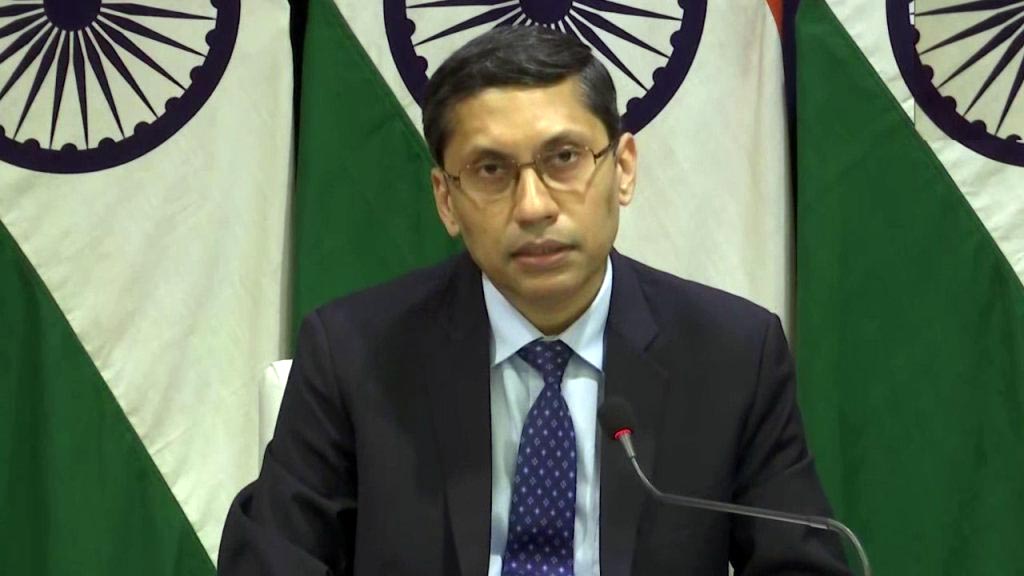
(TibetanReview.net, Jan07’22) – India on Jan 6 reacted strongly to China’s recent actions of criticising members of parliament for attending a reception hosted by the Tibetan Parliament in Exile, renaming places in the border state of Arunachal Pradesh in standard pinyin spellings, and its building of a bridge over the Pangong Lake on its occupied side of Ladakh.
It called the renaming a “ridiculous exercise” to support “untenable claims”. And it described the writing of letters to the Indian MP’s “inappropriate” in “tone, tenor and substance”. Besides, it said the bridge over Pangong lake was being constructed in areas under “illegal occupation by China”.
Responding to questions during a virtual briefing on Jan 6, India’s Ministry of External Affairs (MEA) official spokesperson Arindam Bagchi said, “We had seen reports of the Chinese side naming some places in Arunachal Pradesh last week. At that time, we had conveyed our views on such a ridiculous exercise to support untenable territorial claims.”
He said “calling Tuting as ‘DouDeng’ or River Siyom as ‘XiYueMu’ or Kibithu as ‘Daba’ does not alter the fact that Arunachal Pradesh has always been and will always remain an inalienable part of India.”
He asked China to refrain from engaging in such antics and instead “work constructively with us to resolve the outstanding friction points in areas along the Western Sector of the LAC in India-China border areas.”

The renaming of 15 residential areas, mountains, rivers and a mountain pass, carried out by China’s Ministry of Civil Affairs, was reported by the official globaltimes.cn website Dec 30, with Beijing reiterating “legal” and “historical” right to do so after it had carried out a similar exercise in Apr 2017.
China calls Arunachal Pradesh “Zangnan” or “southern part of Tibet” and its territory by virtue of its occupation of Tibet. India on Dec 31 rubbished China’s claim by calling Arunachal Pradesh an integral part of it, that “assigning invented names to places” does not “alter this fact”.
On the reports that China was building a bridge on the Pangong Lake on the Chinese occupied side, the MEA spokesperson said the government has been monitoring this activity closely.
“This bridge is being constructed in areas that have been under illegal occupation by China for around 60 years now. As you are well aware, India has never accepted such illegal occupation,” Bagchi said.
The MEA spokesperson also referred to the letters the Political Counsellor at the Chinese embassy in New Delhi had directly written on Dec 30 to Indian MPs who had attended a Dec 22 reception hosted by the Tibetan Parliament in Exile.
“The substance, tone and tenor of the letter are inappropriate. The Chinese side should note that India is a vibrant democracy and Hon’ble MPs, as representatives of the people, undertake activities as per their views and beliefs. We expect the Chinese side to refrain from hyping normal activities by Honourable MPs and complicate further the situation in our bilateral relations.”
In his letter, Counsellor Zhou Yongsheng had said, “China firmly opposes any anti-China separatist activities conducted by ‘Tibetan independence’ forces in any capacity or name in any country and opposes any forms of contact by officials of any country with them.”
The dinner reception was held to announce the revival of the All-Party Indian Parliamentary Forum for Tibet, which was first launched in 1970.





